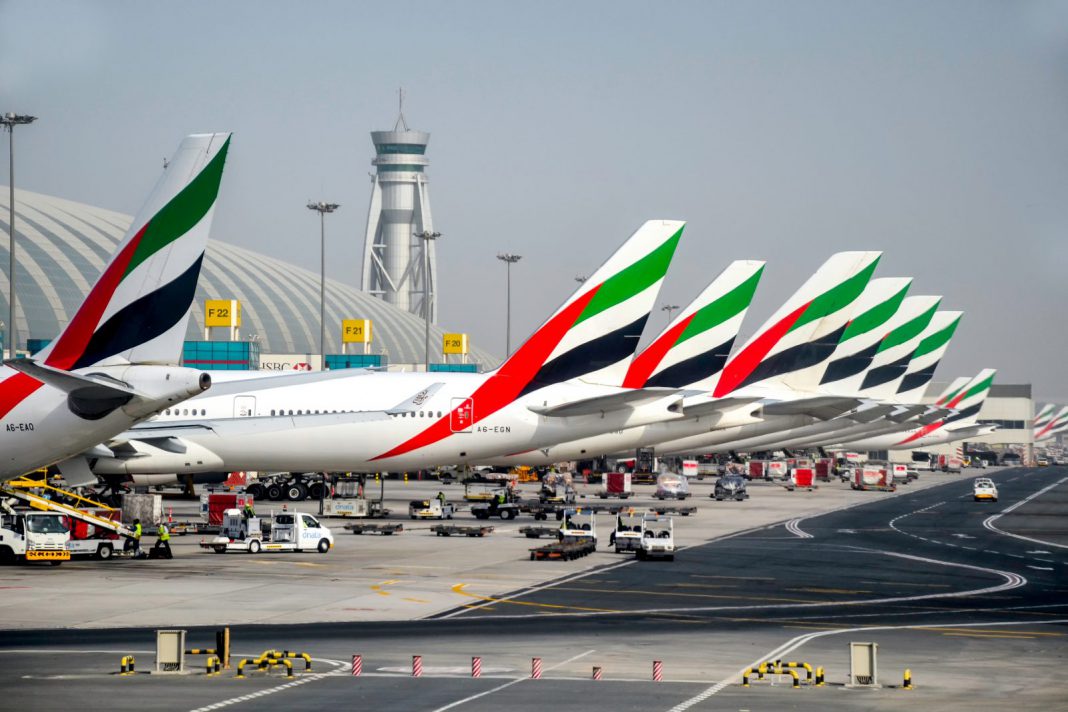Travelers worldwide are facing major disruptions as multiple Middle Eastern countries have suddenly closed or restricted their airspace amid escalating geopolitical tensions. The closures come as conflict between Israel and Iran – now involving U.S. military strikes against Iranian nuclear sites – sparks a major crisis across one of the world’s most vital aviation corridors.
Airspace restrictions are now in effect across Qatar, the UAE, Bahrain, Kuwait, Saudi Arabia, Jordan, Lebanon, Iran, Iraq, Syria, and Israel, leading to widespread flight cancellations, delays, and detours for both leisure and business travelers.
Major airlines including Emirates, Qatar Airways, Etihad, Turkish Airlines, British Airways, Lufthansa, and several U.S. carriers have been forced to cancel or reroute flights. Passengers traveling long-haul routes between Europe, Asia, Africa, and Australia are facing significantly longer journeys and unexpected diversions as aircraft avoid closed airspace.
Even before this latest escalation, the closure of Russian and Ukrainian airspace due to the ongoing war had already placed added pressure on Middle Eastern flight corridors. With this new wave of closures, airlines are now diverting flights farther north over the Caspian Sea or south through Egypt and Saudi Arabia, adding several hours to some routes. According to travel agents, these extended routes increase flight times and drive up fuel and crew costs, challenges compounded by rising global oil prices in the wake of the US strikes. Other passengers have found themselves stranded at major hub airports such as Dubai, Doha, Abu Dhabi, Tel Aviv, and Muscat, where surging traffic has led to packed terminals, flight delays, and limited hotel availability.
The ripple effects extend far beyond airports. Hotel bookings are being cancelled and rebooked at record pace, especially at airport hotels overwhelmed by stranded travelers seeking last-minute accommodations. Tour operators are scrambling to adjust or cancel multi-country itineraries, cruises, and regional tours that involve stopovers in the affected countries.
Travel Insurance Claims Climbing
The uncertainty has led to a spike in travel insurance claims, as passengers seek compensation for trip interruptions, delays, or outright cancellations. However, some policies may limit coverage related to political instability or war-like events, leaving many travelers confused about what is covered.
Key Actions for Agents, OTAs, DMCs, and Travel Professionals
- Prioritize Real-Time Client Communication: Travelers need timely, clear, and proactive updates. Proactively notify all affected clients about disruptions, expected delays, and available alternatives.
- Advocate for Flexible Solutions: Encourage suppliers to extend waivers, refund policies, and flexible rebooking windows wherever possible. Agents should work closely with airline partners and insurance providers to advocate for travelers.
- Support Stranded Clients In-Transit: DMCs and ground operators must mobilize on-the-ground support for travelers needing alternative accommodations, transfers, or local assistance.
- Monitor Official Advisories Continuously: Agents should track NOTAMs, aviation authority updates, and government travel advisories to stay ahead of the fast-moving situation.
- Reassure, Calm, and Counsel: The emotional toll on travelers is significant. Many are nervous, anxious, or frustrated. Strong agent-client communication is critical to maintaining trust and long-term loyalty.
Looking Ahead
There is currently no clear timeline for when airspace restrictions might be lifted. As diplomatic negotiations continue, travelers should be prepared for ongoing disruptions, especially as the busy summer travel season approaches.
Emerging travel risks to watch-out going forward include :
– Traveler Confidence Erosion: Even when airspace reopens, clients may express hesitation about transiting through Gulf hubs for months to come.
– Corporate and Group Travel Chaos: MICE business and corporate itineraries are being heavily disrupted, with companies postponing or cancelling events throughout the region.
– Overflow Stress on Secondary Airports: Spillover traffic is putting unexpected pressure on airports like Muscat, Larnaca (Cyprus), and secondary UAE hubs, with new safety, logistical, and capacity challenges.
This unfolding crisis is a sharp reminder of how quickly international travel can be disrupted by geopolitical events. Travel professionals are urging flexibility, patience, and proactive communication as they assist clients navigating cancellations and complicated rebooking processes.


